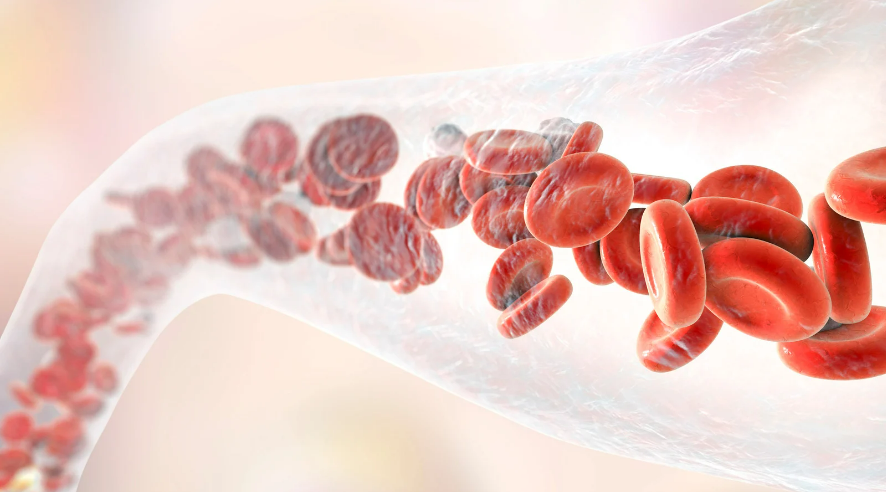The Vital Importance of Understanding Our Body's Vessels
- 17 July 2022

Our bodies are incredibly complex systems, made up of countless interrelated parts and functions. One of the most essential elements of this system are our vessels, the tubes and channels through which blood, oxygen, and other vital substances circulate. Understanding the role that these vessels play in our health and wellbeing is essential to maintaining good health, preventing disease, and ensuring that our bodies function at their best.
Blood Vessels
One of the most important types of vessels in our bodies are our blood vessels. These include arteries, veins, and capillaries, which work together to circulate blood throughout our bodies. Arteries are the blood vessels that carry blood away from the heart, while veins are the vessels that bring it back. Capillaries, meanwhile, are the tiny vessels that connect the larger arteries and veins, allowing oxygen and nutrients to be exchanged between the blood and the cells of our bodies.
Lymphatic Vessels
Another important type of vessel in our bodies are our lymphatic vessels. These vessels help to move lymphatic fluid through our bodies, removing waste and helping to boost our immune system. They also play an important role in removing excess fluid and preventing swelling, which can be a sign of injury or disease.
In addition to these key vessels, our bodies also contain a number of other important vessels, including the bile ducts, which transport bile from the liver to the small intestine, and the ureters, which carry urine from the kidneys to the bladder.
Understanding the role that each of these vessels plays in our bodies is crucial to maintaining good health. For example, keeping our blood vessels healthy and functioning properly can help to prevent heart disease and stroke, two of the leading causes of death in the world. Meanwhile, keeping our lymphatic vessels functioning well can help to prevent swelling and improve our overall immune function.
It's also important to be aware of the risk factors that can damage our vessels, such as smoking, high blood pressure, and poor diet. By taking steps to reduce these risks and maintaining a healthy lifestyle, we can help to keep our vessels healthy and functioning properly, and enjoy a long, healthy life.
Мessels in our body: Arteries, Veins, and Capillaries
Arteries are the blood vessels that carry blood away from the heart and distribute it throughout the body. They are made up of a thick layer of smooth muscle and elastic tissue, which allows them to withstand the high pressure of blood being pumped from the heart. This pressure helps to keep blood flowing throughout the body, even against gravity, and ensures that oxygen and nutrients are delivered to all parts of the body. However, this high pressure can also be damaging, leading to conditions like atherosclerosis, where fatty deposits build up in the walls of the arteries, reducing their diameter and making it harder for blood to flow through.
Veins, on the other hand, are the blood vessels that bring blood back to the heart. Unlike arteries, veins have relatively thin walls and rely on the contraction of the muscles surrounding them to move blood back to the heart. This can make them vulnerable to pooling and swelling, particularly in the legs, where gravity can make it difficult for blood to flow upward. To help combat this, many veins contain tiny one-way valves that prevent blood from flowing backwards and pooling in the veins.
Capillaries are the smallest of our blood vessels and play a crucial role in exchanging oxygen and nutrients between the blood and our cells. They are so small that red blood cells must pass through them in single file, allowing oxygen and nutrients to diffuse through the walls and into the cells of our body. This exchange is essential for keeping our cells healthy and functioning properly, and any disruption to the capillaries can have a significant impact on our health.
By understanding the role that each of these vessels plays in our bodies, we can take steps to maintain their health and prevent the diseases and conditions that can arise from damage or dysfunction. Whether it's through lifestyle changes, regular exercise, or monitoring our health for warning signs, taking care of our vessels is a key part of taking care of ourselves and ensuring a long, healthy life.
In conclusion, our body's vessels play a vital role in our health and wellbeing, and it's essential that we understand their importance and work to maintain their health. Whether it's through lifestyle changes, regular exercise, or monitoring our health for warning signs, taking care of our vessels is a key part of taking care of ourselves. So take the time to learn about your body's vessels and start making the changes necessary to keep them healthy and functioning properly.




